#Manoj
Explore tagged Tumblr posts
Text
Mahima Chaudhry was the original choice for Rani Mukerji's role in Hadh Kar Di Aapne, reveals director Manoj Agarwal - Times of India
Govinda and Rani Mukerji’s classic rom-com Hadh Kar Di Aapne recently completed 23 years of its release. The on-screen jodi of Govinda’s Raj and Rani’s Anjali was loved by all and their love and hate chemistry is still etched everyone’s heart and mind. However, many might not know that Rani was not the original choice for Anjali Khanna’s role in the film. Director Manoj Agarwal recently opened up…

View On WordPress
2 notes
·
View notes
Text
Manoj Sisodiya
About Manoj Sisodiya
Hello! I’m Manoj Sisodiya from Jhunjhunu, Rajasthan. I hold an MBA in Digital Marketing from Rohtak, Haryana. With a strong foundation in digital marketing and a keen interest in the IT sector, I specialize in creating data-driven marketing strategies that help businesses enhance their online presence.

Currently, I work as a Digital Marketing Professional, focusing on SEO, Social Media Marketing (SMM), Content Strategy, and Paid Advertising. I’m passionate about leveraging technology to drive business growth and stay ahead of emerging trends like AI and Machine Learning in digital marketing.
My goal is to continue expanding my expertise in both digital marketing and IT, helping businesses adapt to the ever-evolving digital landscape.
0 notes
Text
Shankar's Game Changer | Fahadh Faasil in Leo? | Love Today Remake Update | Sasikumar Direction | Manoj direct his first movie
0 notes
Text

#movies#polls#gangs of wasseypur part 1#gangs of wasseypur#2010s movies#anurag kashyap#manoj bajpayee#richa chadha#tigmanshu dhulia#requested#have you seen this movie poll
34 notes
·
View notes
Quote
Nurture your Dream everyday. A strong dream will empower you to take bold decisions and allow you to follow your heart.
Manoj Arora, Dream On
#quotes#Manoj Arora#Dream On#thepersonalwords#literature#life quotes#prose#lit#spilled ink#daily#daily-inspiration#decision#decision-making#decision-quotes#decisions#decisions-in-life#decisions-inspirational#dream#dream-big#dreaming#dreams#dreams-quotes#follow-your-bliss#follow-your-dreams#follow-your-heart#follow-your-passion#heart
44 notes
·
View notes
Text
#ignore the fact that manoj tiwari is a sanghi weirdo#edit: also i forgot abt sonu bhai being a sanghi too
32 notes
·
View notes
Text

Saira Banu and Manoj Kumar in "Purab Aur Pachhim" (1970)
#saira banu#actress#retro bollywood#bollywood#1970#manoj kumar#actor#filmmaker#purab aur pachhim#film#retro makeup#purab aur paschim#indian
63 notes
·
View notes
Text

A herd of African elephants in the Masai Mara, Kenya.
(Image credit: Manoj Shah via Getty Images)
#manoj shah#photographer#getty images#herd#african elephants#elephants#animal#mammal#wildlife#masai mara#kenya#nature
48 notes
·
View notes
Text
The Fable (2024) Review
Warning: Full spoilers ahead
Director: Raam Reddy
Runtime: 119 minutes
Language(s): Hindi, English, and Pahari audio; English subtitles
Certification: PG (Singapore)

My invite to the screening of The Fable at the 35th Singapore International Film Festival. Director Raam Reddy and lead actor Manoj Bajpayee were in attendance.
“How much knowledge do you need to have to engage with something in a meaningful way?” I was reminded of this question posed by the video essay Reading Binging Benning (2018) while writing my review of The Fable (2024). The video essayists were commissioned by the International Film Festival Rotterdam to introduce a screening of James Benning’s Readers (2017)—but they had no access to the film. They had two stills, detailed information about the film, and access to some of Benning’s other works, but these don’t replace the film itself.
My situation with The Fable isn’t as drastic as these video essayists’, since I actually did watch it. There was even a pre-screening introduction from the director himself, who expressed an intention behind the film: he wanted the audience to undergo a “spiritual” experience.
I did not have this experience.
The Fable has elements that sound like the film could be spiritual. It is slow-paced. It features a group of ascetic people. They chant in unison. One of them meets with the protagonist’s daughter, Vanya (Hiral Sidhu), and they hum together, seeming to have a quasi-telepathic conversation. The protagonist’s wife, Nandini (Priyanka Bose), performs songs about spiritual concepts.
In my research for this review, I discovered that the first song Nandini sings is “Shivoham”, also known as “Nirvana Shatakam”. I frequently found the composition being attributed to the Hindu philosopher Adi Shankara. I didn’t manage to find out what the second composition is, but from what I remember, Nandini sings about a place of seemingly peaceful nothingness.
Maybe the film connects better with Hindu audiences, or at least, with those who are quite familiar with Hinduism, unlike me. However, I feel that it should still be able to resonate. I’m not that knowledgeable regarding Shintoism or Buddhism either, yet I was in awe at Princess Mononoke (1997). Earlier this year, I rewatched the Studio Ghibli film, intending to take mental notes at the same time. It wasn’t long before I forgot all about taking notes. Princess Mononoke entranced me. On the other hand, The Fable was generally boring.
No, a film being boring doesn’t necessarily make it bad. For example, I’d describe Forgotten Planets (2018) as “boring”. Something about it made me want to rewatch it, though, which I did less than a month later. (Granted, there was also the motivation that I had easy access to the film at the time, something which was likely to change in the future.) I think what I liked about Forgotten Planets was its calming mood. Even though neither of its two protagonists are content with the state of things, it’s still a very slice-of-life story without much tension.
The Fable, however, isn’t a pleasantly boring film. It maintains its tension for too long, and for too long at the same level of intensity. The tension mainly comes from the mystery of who is burning the protagonist’s orchards and why. This premise sounds dramatic, but the problem is that it rarely feels like anything is at stake for Dev (Manoj Bajpayee).

Via SGIFF.com
The programme guide of the 38th Leeds International Film Festival (LIFF) calls The Fable a “political allegory”.
I can see that the film touches on the themes of colonialism and class. At the beginning, a narrator from the future tells us that it was the British who gave the orchards to Dev’s family. The British gave them to his family as a reward. At the end, the narrator says that Dev and his family suddenly disappeared one day but not without a letter. In the letter, Dev declares his land returned to the villagers who originally owned it and that he gives the family residence to his former orchard manager, Mohan (Deepak Dobriyal), who we discover is the narrator.
Where did Dev and his family go? The filmmakes it quite obvious that they are the fairies in the…well, fable that the wife of an orchard worker tells her young son. “It’s about a family who looked just like us,” the woman says. “Even they thought they were like everyone else. But the truth was, they were special souls.” She goes on to say that these “special souls” are actually fairies who had come to earth and forgotten where they came from.
At the start of The Fable, Dev is shown to have a hobby of designing and building wings that let him fly around. At the end, we catch a glimpse of winged figures soaring through the clouds and a pair of his engineered wings attached to a stake in the woods, fully unfurled.
LIFF describes the film as not only a “political allegory” but an “incisive” one.
I can’t see the allegory.
What was the point of making Dev and his family fairies? Having the land returned to their original inhabitants seems to display an anti-colonialist sentiment, but this is undermined by implying that the “special souls” in this story are the characters who have ties to the colonisers.
As a Muslim, I connect to the idea that there is a better world beyond this earth. I believe that even if someone’s life appears to be full of hardship and pain, if they endure it patiently and correctly (i.e. according to God’s commands), then they will attain Paradise in the hereafter. Leaving this world would be liberating for them.
I didn’t feel any sense of liberation when Dev and his family leave earth. Of course, having your land mysteriously burn away before you would be terrifying for anybody. The fire even reaches the plants before the family’s doorstep. But when compared to the tribulations of their employees, those that Dev and his family experience don’t feel particularly heavy.
During the mysterious fires, the patwari (also known as a village accountant) continuously tries to impress wealthy landowner Dev by “assisting” in the investigation, including getting police officers to make arrests. After a huge fire on a mountainside, the patwari brings the police and tells them to make five arrests no matter what. So, without any sufficient evidence, the police arrest five orchard workers who risked their lives to put out the raging fire. Who will assist the villagers? Dev eventually stops the police from taking the arrestees away—but he appears to do this reluctantly. Later, he lays off all his staff.
After all that has happened, is it really a liberation for Dev and his family to fly away to their fairy home?
What’s the allegory?
In Reading Binging Benning, Kevin B. Lee talks about his experience watching his first Benning film, RR (2007). Lee says, “The whole time, my head is spinning, trying to figure out, ‘Is there something in front of me that I’m just not seeing?’ I was facing an image that wasn’t telling me how to read it.”
Maybe I don’t know enough about the history or cultures of India to appreciate the film. But how much do I need to know? How much knowledge is fair to assume the audience has? It sounds strange, but The Fable could probably do with more exposition.
Rating: 1.5/5
Thank you to SGIFF for the Cinephile Pass and for the invite to the Special Presentation of The Fable.
#sgiff#sgiff35#35th singapore international film festival#film criticism#film review#movie review#raam reddy#the fable#manoj bajpayee#deepak dobriyal#indian cinema#indian film#drama#magical realism#magic realism
3 notes
·
View notes
Text
youtube
Shit's hilarious
7 notes
·
View notes
Text
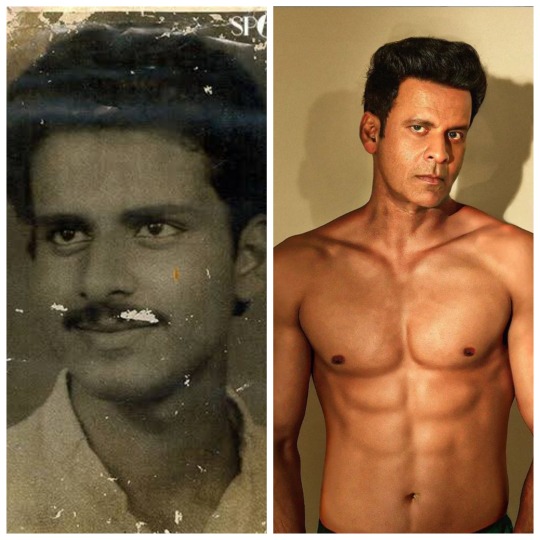
Happy Birthday, Manoj Bajpayee (23/04). What are your favourite Manoj Bajpayee roles?
9 notes
·
View notes
Text
After witnessing the dumpster fire that was HBO's Velma, I decided to let off some steam by creating some concept art of a Scooby doo series about a new generation of mystery solvers whilst the original mystery inc are now elderly mentors…
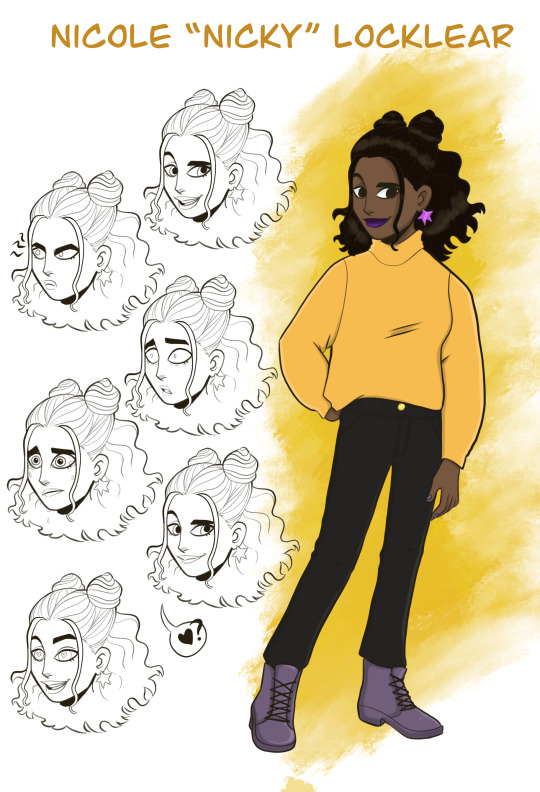



The whole gang

#Nicky#scooby doo#scooby doo concept art#Scooby doo: Legacy#velma hbo max#scooby gang#new Scooby gang#Concept art#next generation#next gen oc#francisca “Frank” Rodriguez#Tommaso “TNT Tommy” Rossi#Manoj “Manny” Singh#Nicole Locklear#myart#myartwork
53 notes
·
View notes
Photo









This girl is a ray of hope for all those children outside this building who have their eyes on this verdict. But for the defense counsel, this case is about faith. Nothing beyond that. Your honour, if faith is above all, I want to end this with a story...
Shivji smiled and said, "Parvati, sin has been divided into three categories. First is that which humans commit knowingly or unknowingly, and they can atone for it by apology or various other methods. Second category is known as atrocities. Like murder, abduction and other such heinous crimes. Even they can be forgiven to some extent. But the third category is known as a great sin. And there is no forgiveness for it." This is where Parvatiji interrupted Shivji, and asked him in astonishment. "Lord, Raavan abducted Sitaji. It should be known as an atrocity. Why do you call it a great sin?" Shivji smiled again and said, "Parvati, a sin that affects humanity and spirituality for centuries to come, falls under great sin. I would have forgiven Raavan, if he had abducted Sita as Raavan. But he disguised himself as a sage, and this shall affect sages and religion for centuries," and there is no forgiveness for it, your honour. And he is Raavan! Raavan! He shouldn't be pardoned. He has betrayed his profession. He has betrayed innocent children. He has betrayed you, me, and Mahadev himself! He used his name to commit a dreadful crime. I claim a death penalty. To be hanged till death!.. I'm sorry, your honour. For raising my voice.
SIRF EK BANDAA KAAFI HAI (2023), dir. Apoorv Singh Karki
#filmedit#movieedit#bollywoodedit#dailytvfilmgifs#filmgifs#dailyflicks#tvandfilm#moviegifs#cinematv#userfilm#hindi cinema#bollywood#manoj bajpayee#sirf ek bandaa kaafi hai#*#roedits#truly a gem of a movie#what performances o.O#q
52 notes
·
View notes
Text

Manoj Jadhav, "Portrait of a Culture," 2016
#op#photography#manoj jadhav#collage#mixed media art#digital aesthetic#video game aesthetic#cyber aesthetic
3 notes
·
View notes
Text

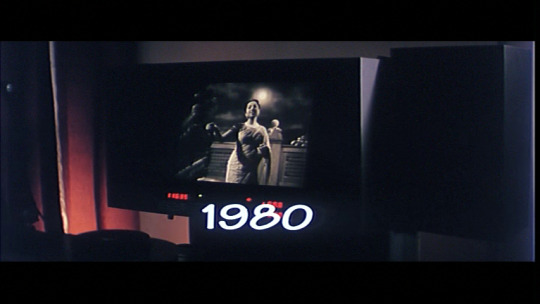
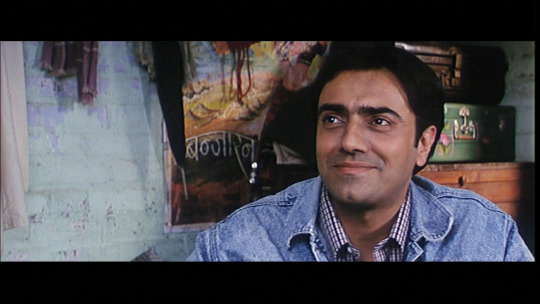

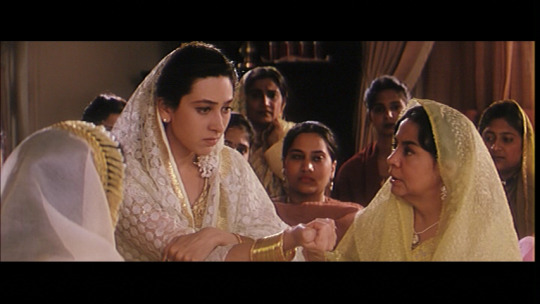
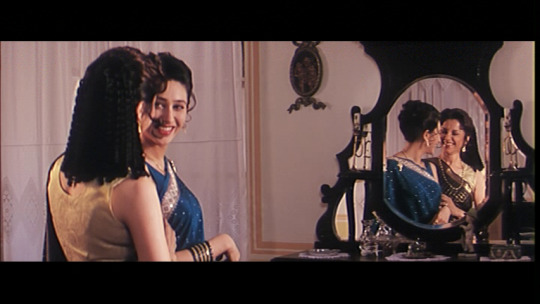

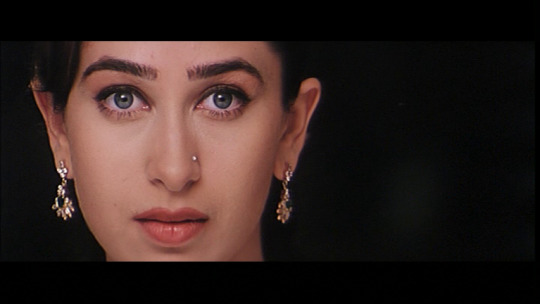
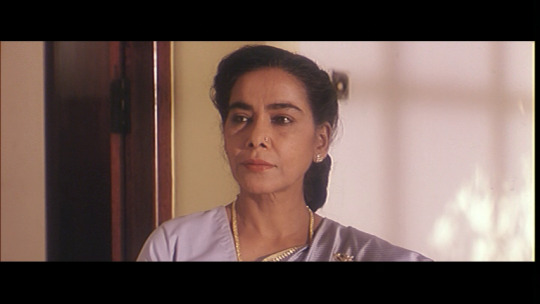


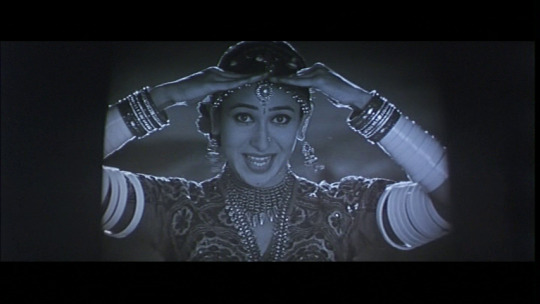

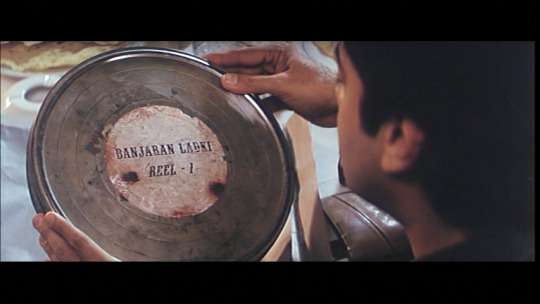
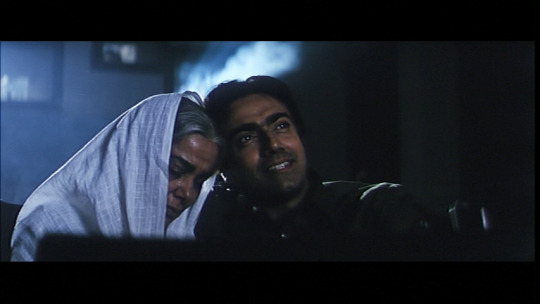
ZUBEIDAA (2001) — dir. Shyam Benegal
#zubeidaa#karishma kapoor#surekha sikri#rajit kapoor#manoj bajpayee#rekha#lillete dubey#screenwriter: khalid mohammed#shyam benegal#hindi film#bollywood#indian cinema#caps#*
9 notes
·
View notes